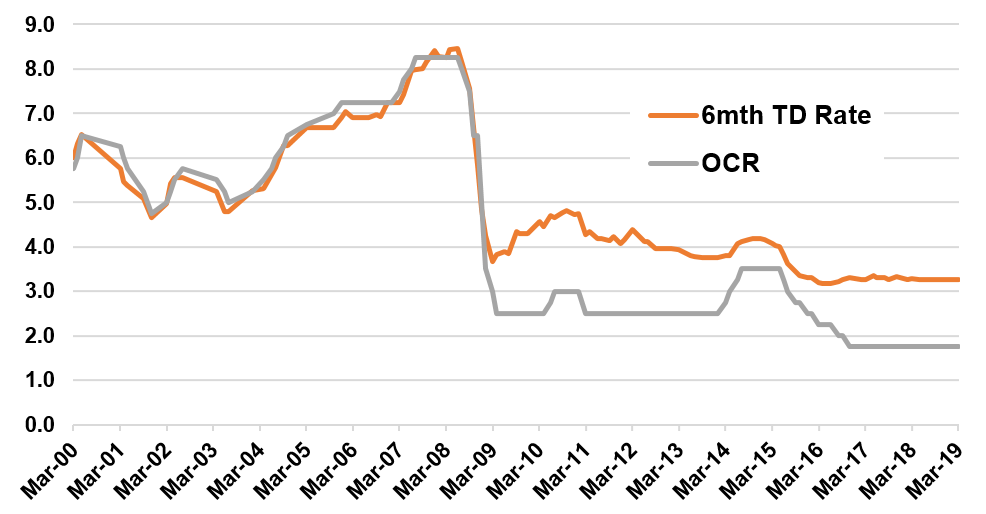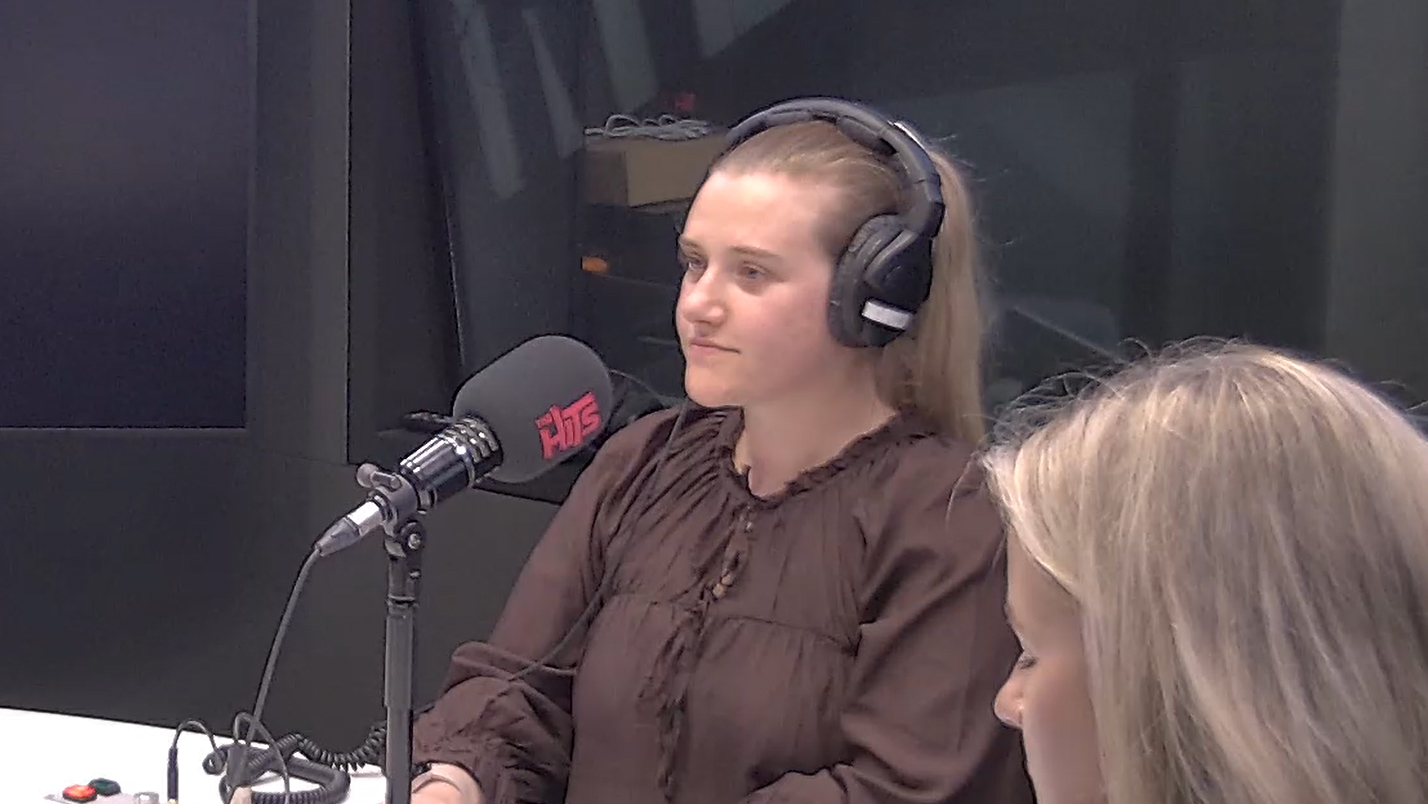Last week the Reserve Bank of New Zealand (“RBNZ”) cut its Official Cash Rate (“OCR”) from 1.75 percent to a record low of 1.50 percent. It noted there is now a “more balanced outlook for interest rates”, albeit details in its accompanying Monetary Policy Statement suggest the door remains ajar to another cut.
This is good news for borrowers, notably residential mortgage borrowers as banks cut mortgage lending rates. There are however two sides to every interest rate and savers using bank term deposits have also seen their rates cut.
Given even lower interest rates it is likely some savers will have noted suggestions from the RBNZ governor at his post Monetary Policy Statement press conference that they should think about alternatives to term deposits.
Many savers use term deposits as a simple and accessible investment. The most natural progression away from term deposits in terms of risk and complexity are bonds or fixed interest.
Why bonds over term deposits
As illustrated in the chart below, competition among banks to attract term deposits to meet regulatory requirements has meant term deposit rates have fallen less than the OCR. This has held term deposit rates elevated relative to New Zealand bond interest rates, even on many corporate bonds, which has made some investors reticent to invest in bonds.
That would however have been to their detriment. For example, since 10th November 2016 when the OCR was cut to 1.75 percent the New Zealand investment grade corporate bond market has returned over 5.0 percent per annum compared to an average 6-month bank term deposit rate of about 3.25 percent per annum over the same period.
History of 6-month Retail Bank Term Deposit Rate* & OCR to March 2019:

*Average retail six-month term deposit rate calculated and published by the Reserve Bank of New Zealand. See https://www.rbnz.govt.nz/statistics/b3.
Savers can be put off by the appearance that bonds are more complex than term deposits. While true, the difference is exacerbated by a general lack of understanding of the risks associated with bank deposits (see here). Nevertheless, we suggest any added complexity can be navigated through good financial advice and/ or the use of a bond fund manager.
Some investors have been, and remain, wary of the interest rate exposure inherent in bonds. Diversified portfolios of bonds and shares should instead note the need to retain some interest rate exposure, to benefit from the fact bond interest rates typically fall (meaning their prices rise) when share markets fall or market volatility increases.
Furthermore, a glance to the negative interest rates in many offshore economies should act as a warning that another fall in bond and term deposit interest rates remains a possibility. Rolling/ reinvesting of short dated term deposits therefore has reinvestment risk (i.e. reinvesting at lower rates), compounded by the possibility that post the RBNZ bank capital review banks may look to protect their returns by cutting term deposit rates, irrespective of the OCR.
As alluded to here, banking regulation changes meant deposits are generally no longer able to be broken by depositors, except for financial hardship. That means savers should be wary of their tenor. This compares to bonds and most bond funds which can be bought and sold daily.
Finally, a portfolio of bonds held directly or via a bond fund provides improved diversification away from the risk of failures in the banking system. Potential increases to bank capital levels should reduce the chance of a bank failure and a bank’s deposits falling foul of Open Bank Resolution (see here).
Nevertheless, we agree with the RBNZ governor that savers should look to diversify, at least in part, away from term deposits. Bonds/ fixed interest funds are a natural progression. Those investors wary of market interest rates going higher, can mitigate the risk by using bond funds which explicitly target an absolute return. Remember also that while some bond interest rates may be lower than term deposit rates, through active management, and of course the possibility bond interest rates fall further, bond funds may realise higher returns than term deposits, as we have seen in recent years.


